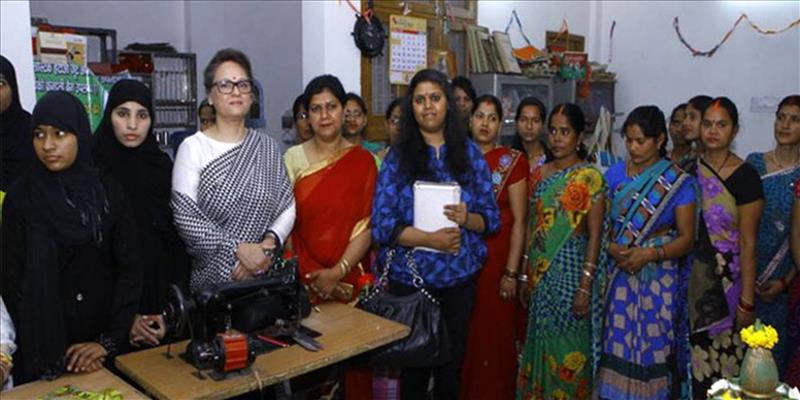SHOP NOW

Jute for Life - 11 Feb 2019
Hundreds of Women Switched from Jute Industry
From the international market to jute goods in the Indian continent there is a huge demand. A traditional sack is being made from jute for fashionable clothes, slippers, decorative items, and packaging. But the cultivation of jute is going down in the country.
In such a case, with the help of the Central Government, Uttar Pradesh Agricultural Department has started working to promote jute and Sanai cultivation to meet this increased demand for jute in the country and abroad.
About 49% of the total production of jute in the world is produced in India. Even today, about 40 lakh farmers in the country are producing jute in eight lakh hectares. Even today, there are more than 2.5 lakh people working in jute factories manufacturing different types of products. In this way, the farmers of Uttar Pradesh also cultivate jute and improve their economic status through this cash crop.
The Government of India is empowering women empowerment, which is, by breaking their traditional bonds today, women are stepping forward in every sphere by big speed. In the business world, women have been giving great talent to success. In this article, a case study is being organized on the participation of women in jute trade.
A lady from Lucknow who did something like this might prove difficult even for men. We are talking about Anjali Singh's Recently, Anjali has been awarded the FICCI Award by Governor Ram Naik for achieving success in the category of women entrepreneurs.
Anjali quit her job to achieve her position and started the business of jute. Through this trade, Anjali herself made her own identity, as well as those women whose economic status was not good, she also linked to her business and provided employment. Their initiative is proving an example for the people.
A project was being run by the National Textile Ministry on behalf of the Ministry of Education, where about 2.55 lakh women were being given training there. When I saw that such a number of women are training, then I got the idea of doing this business in my mind because I was getting women from here right here.
The financial condition of those women was not so good that they could start their own business, so I decided to start this business and give employment to those women. It was a good thing in those days that the polythene was banned, so there was also a benefit in this trade.
Although initially, the women had to explain enough to add to the business as the atmosphere of their home was not so much, they sent them out of the house but took hard work and started jute trading in the name of Jute Artisans Guild Association Association. At this time two hundred women are working with me.
While continuing the conversation, Anjali shared the beginning of her business days, saying that the biggest challenge was to introduce raw material at the beginning of the business as nobody in the family had ever done business before and even the financial condition was not very strong. During that time we caught small retailers who were in Kanpur and Delhi, provided our raw material, besides those women, who also had to pay salaries, this was a bit difficult.
One of the reasons for this was that we were able to get payments after about three to four months after the delivery of goods. During the conversation, Anjali spoke, slowly, when our business started to grow, we applied for a loan from the bank. When the bank saw so many women doing the survey, she was also convinced that in this way we got a loan from the bank.
Regarding the delivery of goods, Anjali says that I prepare and sell goods only on government orders, today Anjali's jute bags, shopping bags, the business of making delegate kits have achieved a big point and now the raw material directly jute Milk raises itself from Calcutta.
Regarding profits in his business, Anjali explains that by saving all expenses, about seven to eight percent of the savings are saved because we can not sell our goods at a very costly price if there is a price to sell at the price, then no one will take it. If more and more people are joining me today, then we have to take special care on price and quality.
Regarding the future, Anjali says that she wants to take this business forward and give training to the needy. After training, if he wants us to work or do his own business, then raw material can be taken from us. I should not have any benefit in the rate of Calcutta.
Some awards have also been nominated for their names
On March 8, it was also awarded the Best Women Entrepreneur Award on behalf of Eastern Masala Company, and in May 2017, HT Media has also been nominated for the award.
Lucknow Management Association honored with the Best Women Entrepreneur Award on March 8, 2017.
On April 29, 2017, Governor Anand Nagar was awarded the FICCI Award for Outstanding Woman Entrepreneur.
Conclusion
Thus, at present, Indian women are playing a very successful entrepreneur's role very well. They are transforming society into becoming a source of inspiration for each other. With the cooperation and efforts of the government, the jute industry is becoming an important tool for women empowerment.